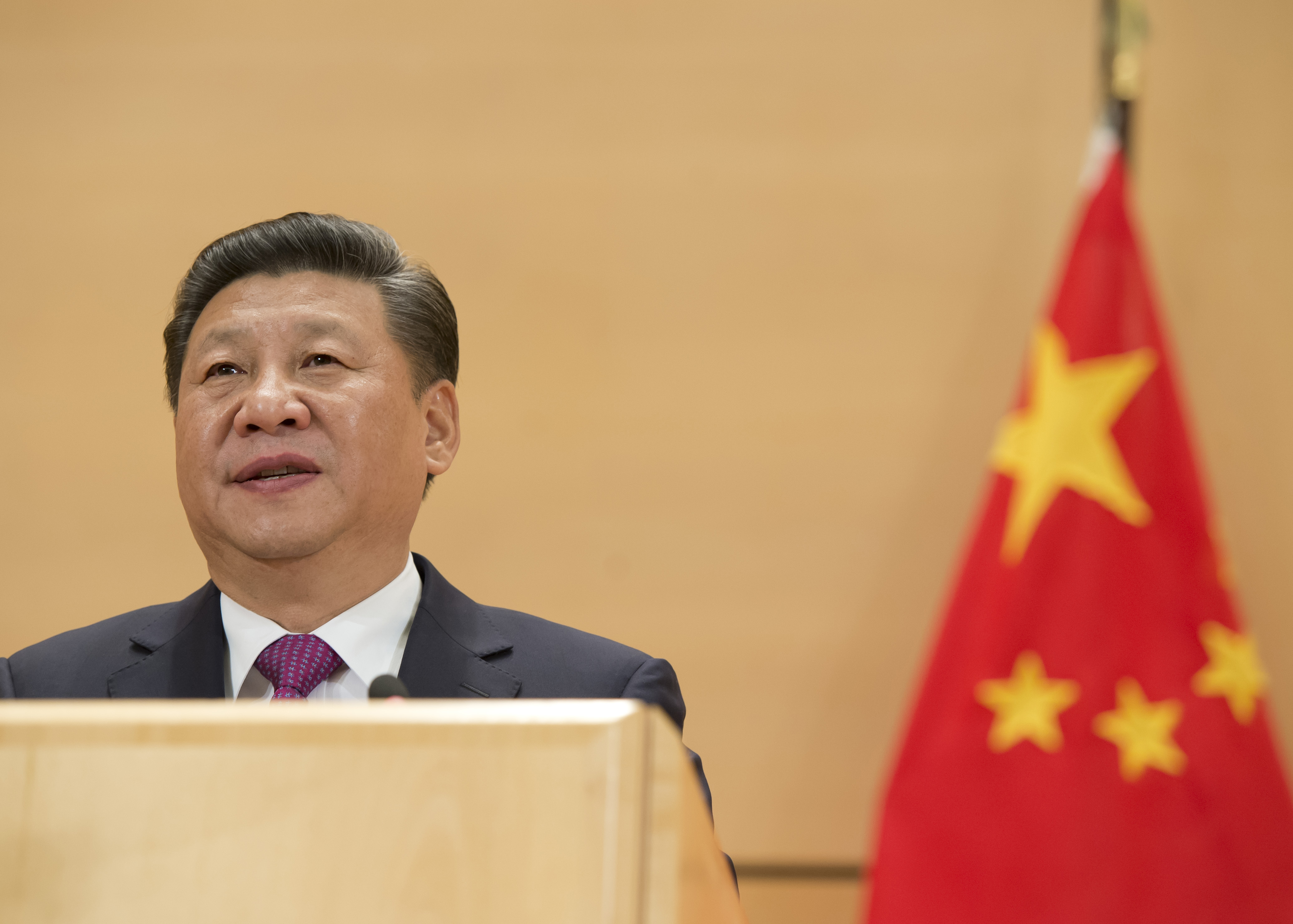Why China’s Foreign Economic Coercion Has Been Relatively Ineffective

Published by The Lawfare Institute
in Cooperation With

Editor's Note:China, like the United States, uses access to its massive economy as a way to coerce states that go against the regime’s wishes. The University of San Diego’s Kacie Miura finds, however, that China’s implementation of economic pressure is uneven and depends on the needs and ambitions of local government officials.
Dan Byman
***
Economic coercion has emerged as a key component of China’s foreign policy. To punish other countries for perceived challenges to its national interests or the legitimacy of the Chinese Communist Party (CCP), China does not shy away from inflicting economic pain. In 2021, for example, after the opening of a Taiwanese Representative Office in Lithuania was announced, China retaliated by suspending permits for Lithuanian food imports. Similarly, in 2020, following Canberra’s calls for a World Health Organization-led inquiry into the origins of the coronavirus, China halted imports of Australian beef, barley, and other products. This came on the heels of curbed coal imports following Australia’s exclusion of Huawei from its domestic 5G infrastructure.
Rather than adopt formal economic sanctions, which it has long criticized as a tool of Western hegemony, China imposes costs through informal methods on targeted countries. To justify an import ban on foreign agricultural products, for example, China often alleges the presence of pests or other ecological threats. These measures afford China some semblance of plausible deniability, making it more difficult for targeted countries to take legal action, while also upholding its principled opposition to formal sanctions. However, while undeniably damaging, these types of punitive actions have also proved to be relatively unsuccessful in persuading targeted countries to alter their behavior in accordance with China’s interests.
As I argued recently in International Security, one reason why China’s economic coercion has not been more effective is the disconnect between central and local government priorities. When implementing informal economic sanctions, China’s top leaders often outsource punishment to subnational authorities. This is especially the case when the targeted country is a major commercial partner with assets and business interests distributed across multiple localities. Yet some local leaders enthusiastically partake in economic retaliation, while others seek to protect their respective business environments from national-level tensions.
The lack of coordination among local leaders during times when national interests or regime legitimacy are at stake may seem odd, given that China is an authoritarian country ruled by a strongman leader. However, the process of career advancement in the CCP, which puts a premium on both meritocracy and patronage ties, inevitably shapes local leader behavior, including decisions to punish foreign economic actors.
So, what are the factors that influence whether and how local leaders partake in economic retaliation? One is economic importance, or whether local leaders regard the targeted state as a key economic partner. Local leaders’ prospects for career advancement are determined in part by their fulfillment of targets that privilege economic growth. Sabotaging commercial ties to a country that contributes substantially to local economic growth could therefore have negative consequences for their careers. As such, local leaders who value commerce with the targeted state have strong incentives to shirk economic retaliation.
A second factor is political vulnerability, or whether local leaders are at risk of being disciplined or demoted by more powerful senior leaders. Local leaders face the threat of being removed from office if they fail to preserve social stability, and those who lack protection of powerful patrons are particularly vulnerable. Thus, during a high-profile foreign policy dispute, those leaders who are politically vulnerable cannot afford to appear soft on a foreign provocateur and may even seek to use the dispute to shore up their patriotic credentials.
These factors were at work during the fallout over South Korea’s 2016 announcement that it would deploy the United States’s Terminal High Altitude Area Defense (THAAD) system. Although South Korea adopted the system in response to North Korea’s nuclear weapons tests, China was furious, citing THAAD’s X-band surveillance system that it worries could be used to gather intelligence within China and undermine its nuclear deterrent. Even before South Korea installed the system in March 2017 on a golf course owned by Lotte, China began engaging in economic coercion, punishing Korean firms by restricting cultural exports, subjecting Lotte stores to arbitrary safety inspections, suspending contracts, curbing tourism, and encouraging popular boycotts of Korean products.
Chengdu, the capital city of the southwestern province of Sichuan, was one of the first localities to begin implementing retaliatory measures. Local authorities, apparently without explicit direction from the center, canceled an EXO K-pop concert, inspected the local Lotte department store, reclaimed office spaces promised to Korean start-ups, and delayed business contracts that were part of a new Sino-Korean Innovation and Start-Up Park. Chengdu’s leaders enthusiastically participated in economic retaliation because they arguably had little to lose. Exports to and investment from South Korea constituted a mere 0.26 percent of Chengdu’s economy. Moreover, local authorities could not afford to sit on the sidelines, especially after the central government had signaled its preference for economic punishment. The party secretary and mayor were politically vulnerable—they were confronted by an environmental protest in late 2016 and lacked personal ties to powerful senior leaders in good standing. Moreover, they were under heightened scrutiny due to Sichuan province’s association with former Politburo Standing Committee member Zhou Yongkang, one of the most prominent “tigers” to have become ensnared in Chinese President Xi Jinping’s anti-corruption campaign.
Yet, while foreign media tended to focus on the retaliation carried out by localities like Chengdu, leaders in other cities, like Xi’an, took measures to shield relations with Korean commercial partners. Local officials were especially keen to guard ongoing negotiations with Samsung over plans to expand the company’s semiconductor facility. Even as bilateral tensions peaked, Xi’an’s leaders held a public signing ceremony to celebrate their new deal with the Korean conglomerate. Xi’an’s leaders also took measures to prevent anti-Korean demonstrations and reassured the Korean diplomatic and business communities of their commitment to protect the physical safety of Korean expatriates. Clearly, Xi’an’s leaders valued commercial relations with Seoul, with exports to and investment from South Korea constituting 3.61 percent of the local gross domestic product. Xi’an’s leaders could also afford to protect commercial relations in the face of escalating national-level tensions because, unlike their counterparts in Chengdu, they were not politically vulnerable. The party secretary’s record was unblemished by social protests, and he had overlapping ties to the province’s leadership. He had also been “helicoptered” to a leadership position from Zhejiang province, where Xi had previously served as provincial leader.
The discretionary behavior of local leaders reduces the collateral damage for China of using economic retaliation. Because leaders in cities like Xi’an went the extra mile to protect Korean commercial interests, for example, central government leaders did not need to worry about supply chains that are critical to the national economy. However, the muddied signals that result from local discretion can hamper China’s ability to compel targeted countries to alter their behavior, with the largest foreign investments often being the ones that local officials are most eager to protect. Despite causing an estimated $7.5 billion in losses to the South Korean economy, China’s retaliatory measures did not yield meaningful concessions.
For China, relying on subnational actors to carry out retaliatory measures, which it often does when the target is a major economic partner, makes economic coercion hard to use to its maximum effect. Nevertheless, because the CCP can rely on prudent local leaders to protect critical sectors and supply chains, this particular form of economic coercion will also remain a convenient way to demonstrate its anger at foreign states that challenge national and party interests, and to show China’s nationalist public that foreign transgressions do not go unpunished.





